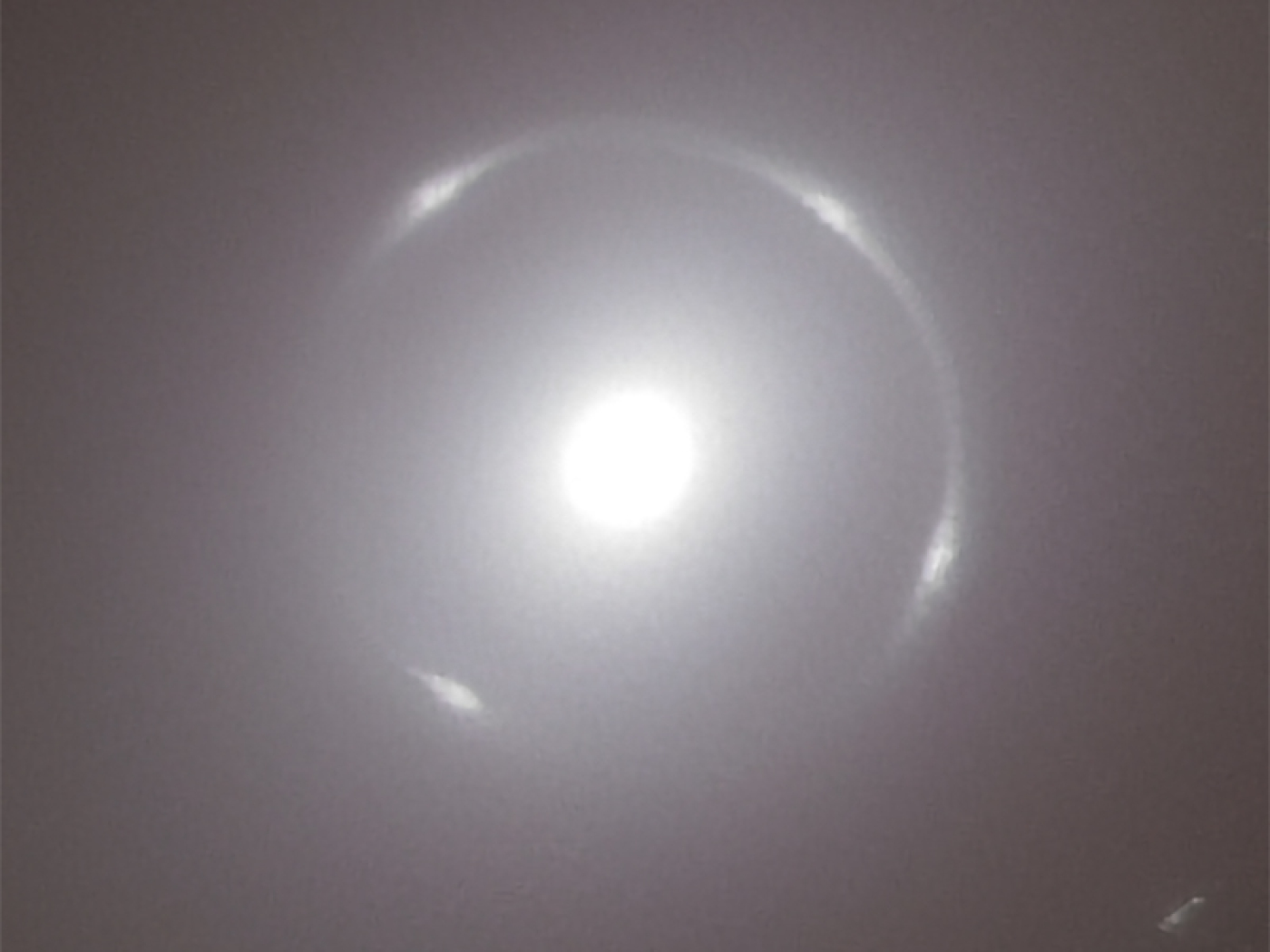
Euclid space telescope discovers an Einstein ring

Thanks to the Euclid space telescope, an international team with Swiss participation has discovered an extremely rare Einstein ring in a nearby galaxy. The findings are published in the journal Astronomy & Astrophysics.
The Einstein’s ring was hidden in the galaxy NGC 6505, announced the European Space Agency (ESA) on Monday, a galaxy located “only” 590 million light-years from Earth, a tiny distance on a cosmic scale.
+Get the most important news from Switzerland in your inbox
“This galaxy has been known to astronomers for a very long time, yet this ring had never been observed before,” says Valeria Pettorino, a scientist with ESA’s Euclid project, quoted in the press release.
The Einstein ring was discovered by chance on a test image that was not intended to be used for scientific purposes. It was on a blurred image that Bruno Altieri, a scientist in the ESA archives, discovered it. On closer analysis of the images, the scientists recognised the ring structure typical of this phenomenon.
Further observations confirmed that it was an almost perfect Einstein ring. Researchers from the Swiss Federal Technology Institute in Lausanne (EPFL) were involved in the data analysis.
An extremely rare phenomenon
An Einstein ring is an astronomical phenomenon, an extremely rare gravitational mirage, according to the ESA. In this case, the light source is a very distant galaxy, 4.42 billion light-years from Earth. This previously unknown galaxy has yet to be given a name.
Between this unnamed galaxy and the Earth lies the galaxy NGC 6505, around which the ring can be seen. The galaxy’s gravitational pull is so strong that it bends the space around it.

More
In space exploration, Switzerland punches above its weight
Light from the background galaxy can therefore no longer fly in a straight line, but is bent around the galaxy, resulting in a characteristic ring of light. This phenomenon was predicted by Albert Einstein in his theory of general relativity.
According to the ESA, these Einstein rings are extremely useful for science. Studying their gravitational effects can help to understand the expansion of the universe and the effects of invisible dark matter and dark energy. They can also be used to study the background galaxy.
Shedding light on dark matter
Over the next six years, the Euclid mission will establish the largest and most accurate 3D map of the universe to date. The probe will collect data on billions of galaxies located up to ten billion light-years from Earth. Scientists hope to be able to deduce knowledge about dark matter from this data.
The Euclid probe was launched in July 2023. Swiss research institutes are taking part in the mission, including the University of Zurich, the University of Applied Sciences Northwestern Switzerland, EPFL and the University of Geneva.
Adapted from French by DeepL/ac
This news story has been written and carefully fact-checked by an external editorial team. At SWI swissinfo.ch we select the most relevant news for an international audience and use automatic translation tools such as DeepL to translate it into English. Providing you with automatically translated news gives us the time to write more in-depth articles.
If you want to know more about how we work, have a look here, if you want to learn more about how we use technology, click here, and if you have feedback on this news story please write to english@swissinfo.ch.

In compliance with the JTI standards
More: SWI swissinfo.ch certified by the Journalism Trust Initiative



























You can find an overview of ongoing debates with our journalists here . Please join us!
If you want to start a conversation about a topic raised in this article or want to report factual errors, email us at english@swissinfo.ch.